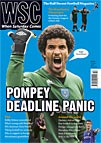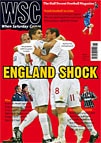 Cameron Carter casts his eye over the BBC's football presenters
Cameron Carter casts his eye over the BBC's football presenters
With no summer tournament as a distraction the new season has been a long wait for all of us. Even so, it is still irritating of Gary Lineker to preface each Match of the Day with a promise of “enthralling” games and “high drama”, as if a significant amount of those watching were still debating whether to commit to the whole programme. Match of the Day is one of the few commodities left, along with milk and weapons-grade uranium, that does not require a hard sell. Lineker is dangerously close these days to resembling the kind of schoolboy no one ever liked until his parents invited all the neighbourhood kids to his birthday party with a bouncy castle (symbolically, Lineker’s 1986 World Cup goals) and a chocolate fountain (the 1990 World Cup goals). This makes the boy popular for a while, but not, as he mistakenly believes, forever. In other words, we’re not actually winking back at you, Gary.
Read more…
 The experiment of using additional officials in the Europa League does not appear to be working
The experiment of using additional officials in the Europa League does not appear to be working